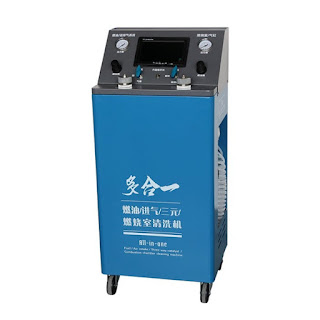Why you should use carbon cleaner well in advance?
The old-age household advice that lemon juice makes for a great cleaning agent has found a new name in the garage. Researchers suggest that a simple wash of citric acid can spruce up exhausted catalystic converter carbon cleaner in diesel-powered cars, renewing their pollution-busting attributes.
In diesel engines, catalytic converters usually contain a
honeycomb of platinum that generally cleans up gases by converting poisonous
carbon monoxide and unburned hydrocarbons into more benevolent carbon dioxide.
This breaks down particles that could contribute to smog.
But generally, Sulphur in the fuel and Phosphorus from
anti-wear oil supplements can easily gum up a converter and prevent it from
working. Researchers have tried different methods to clean them out in the
past, most of them involve strong acids. But while these often do a good job of
wiping away the gunk, they also prefer to eat away at the valuable platinum.
Catalytic comeback
·
The citric acid which was produced industrially instead
of by squeezing lemons usually removed up to 82% of the phosphorus and about
90% of the Sulphur from a catalyst that had been used for driving a diesel car
for approximately 48,000 kilometers. The wash cycle generally took six hours at
80 degrees Celsius.
·
Removing Sulphur and phosphorus in this way proves
to be a very positive step. The average vehicle usually runs for approximately
240,000 kilometers, and catalytic converters are expected to last this long.
But some of the researches suggest that up to 90% of catalysts fail prior to
reaching 80,000 kilometers. Regenerating them on a periodic basis could surely help
to reduce emission pollution.
·
Cars generally built already have on-board
emissions monitoring, which should generally alert the driver when the catalytic
system carbon cleaner starts to fail. Now, many used catalytic
converters are usually recycled to extricate the expensive platinum metal. But
this energy exhaustive process wastes the rest of the catalytic converter.
Reactivation would be surely much more nature-friendly.
The only people who would find it efficiently feasible financially
to clean their converters would possibly be those with fleets of diesel trucks
that can each cover 2 million kilometers during their whole lifetime. With more
rigid emissions monitoring on the skyline, it would make great sense for these
engines to get a regular spring clean. You can look for catalyst
carbon cleaner for sale easily as these are big, invaluable devices,
and replacing them can cost as much as replacing an engine. So, it is better to
take preventive measures well in advance.






Comments
Post a Comment